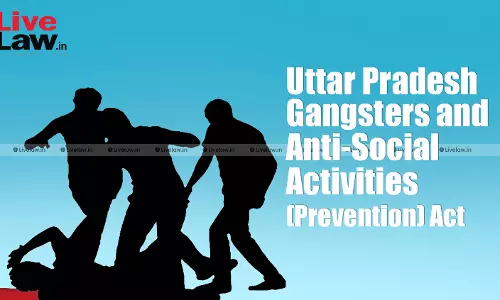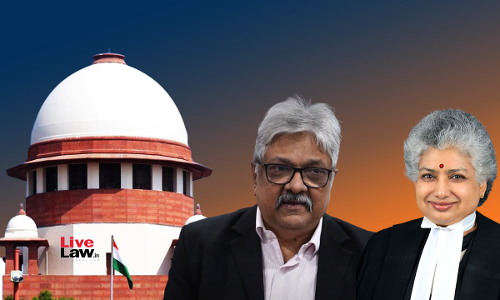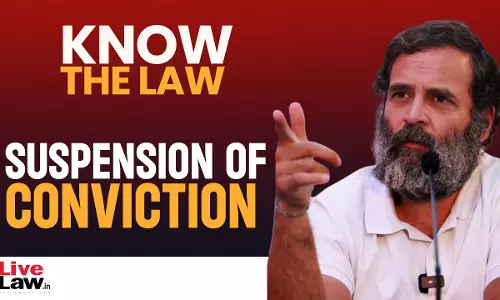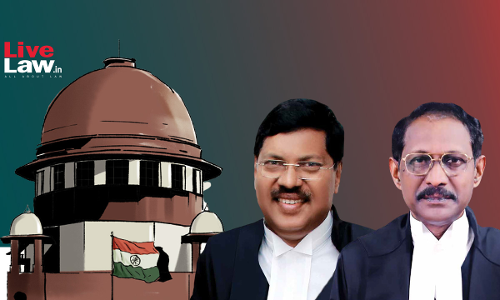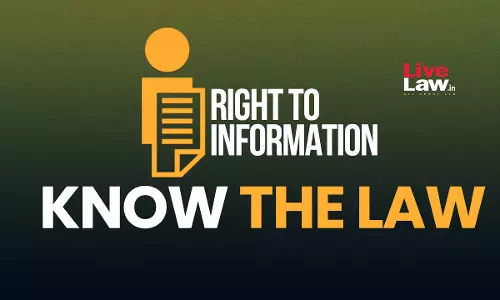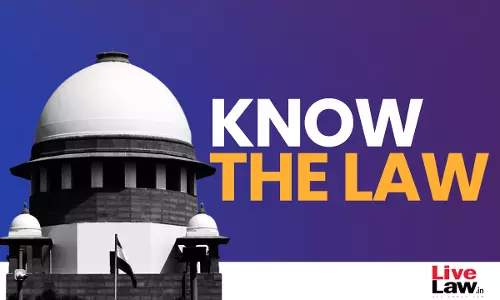Know the Law
Understanding The UP-Gangster Act: A Comprehensive Analysis
Recently in June 2023, Mukhtar Ansari, Ex-UP MLA, was awarded a life sentence in the 32-year-old Awadesh Narain murder case. A fine of Rs. 1 lakh has also been imposed upon him. The MP/MLA court in Varanasi announced the quantum of punishment. Last year, a special MP/MLA Court of Ghazipur convicted him under The Uttar Pradesh Gangsters and Anti-Social Activities (Prevention)...
When Can A Provision Be Held To Be Clarificatory With Retrospective Effect? Supreme Court Explains
The Supreme recently held that for a subsequent order/provision/amendment passed to be considered a clarification to the original provision, it must not expand or alter the scope of the original provision and that the original must be sufficiently vague or ambiguous so as to require such clarification.The Apex Court observed while it was well established that a clarification or an explanation...
Can Husband’s Right To Privacy Prevail Over Wife’s Right To Seek Evidence For Proving Her Allegations Of Adultery? Delhi High Court Answers
Can the husband's right to privacy be permitted to prevail over his wife's right to seek redressal under the provisions of the Hindu Marriage Act?The Delhi High Court today ruled that since Hindu Marriage Act specifically recognises adultery as a ground for divorce, it would not at all be in public interest that the court should on the ground of right to privacy, come to the aid of a married...
S 156(3) & 202 CrPC : Supreme Court Explains Differences Between Powers Of Magistrate At Pre-Cognizance & Post-Cognizance Stages
In a recent judgment(Kailash Vijayvargiya v. Rajlakshmi Chaudhuri and others), the Supreme Court bench comprising Justices MR Shah and Sanjiv Khanna explained the distinction between the power of a Magistrate to direct registration of an FIR and investigation at a pre-cognizance stage under Section 156(3) of the Criminal Procedure Code, 1973 (CrPC), and the proceedings under Chapter...
Rahul Gandhi’s Lok Sabha Disqualification: Legal Position On Suspension Of Conviction | Explainer
Congress leader Rahul Gandhi was recently disqualified from his position as a Member of Parliament after his conviction in a defamation case. He was disqualified in accordance with Article 102(1)(e) of the Indian Constitution read with Section 8 of the Representation of People Act, 1951.He has filed an appeal in Surat Sessions Court to challenge his conviction in the defamation case. While...
Section 52 TP Act -Alienation Of Suit Property Pendente Lite Not Invalid; But It'll Be Subject To Rights Of Litigants : Supreme Court
The Supreme Court has observed that the principle of "lis pendens" is based on "justice, equity and good conscience" and the same will apply even in a case where the provisions of Section 52 of the Transfer of Property Act is not applicable in the strict sense.A bench comprising Justices BR Gavai and CT Ravikumar explained that though the doctrine of "lis pendens" will not invalidate the...
Section 27 of Evidence Act For More Lucidity
Read this in continuation of the Article “Section 27” Of The Evidence Act And The Verdict In “Pulukuri Kottaya” Continue To Elude The Comprehension Of Many Judges At All Levels"If the “information” to be received from an accused person in the custody of a Police Officer should be regarding a “fact discovered”, ANDIf the words...
Can Foreigners Seek Information From Authorities In India Under RTI Act? Explained
Section 3 of the Right To Information Act states all the citizens shall have the right to information. While dealing with a case related to the RTI request of a Tibetan refugee, the Delhi High Court this week considered the question whether a non-citizen or a foreigner can also seek information under the RTI Act.Justice Pratibha M. Singh said that it would be inherently contradictory to hold...
Article 226(2) - Supreme Court Explains Tests To Determine If Cause Of Action Has Arisen Within Jurisdiction Of High Court
In a notable judgment explaining the concept of 'cause of action' under Article 226(2) of the Constitution of India, the Supreme Court held that only those facts, which are relevant to the grant of the relief, will give rise to 'cause of action'. Applying this principle, the Court held that a company cannot challenge a GST notification issued by one state before a High Court located in...
NI Act| Company's Authorized Signatory Not "Drawer" Of Cheque, Not Liable To Pay Interim Compensation Under Sec.143A : Bombay High Court
The Bombay High Court recently held that authorised signatory of a company who signs a cheque on its behalf is not the "drawer" of the cheque and hence such signatory is not liable to pay interim compensation under section 143A of the Negotiable Instruments Act, 1881 in a case for dishonour of cheque."The signatory of the cheque, authorized by the "Company", is not the drawer in terms of...
Compassionate Appointment : Supreme Court Summarises Principles
The Supreme Court, recently, held that since compassionate appointment is not a vested right. A claim for compassionate appointment by the dependent of the deceased employee may not be entertained after a lapse of a considerable period since the death. The Court opined - “...the operation of a policy/scheme for compassionate appointment is founded on considerations of immediacy. A sense...



